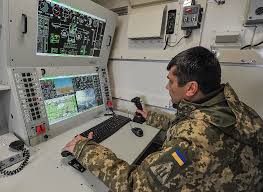Regulation of Artificial Intelligence in the Military Sphere
Introduction
Artificial intelligence (AI) is rapidly becoming an integral part of modern military technology, offering unprecedented capabilities for automation, data analysis, and decision-making. However, the use of AI in the military sphere also raises serious ethical, legal and security issues. In this article, we will examine the main aspects of AI regulation in the military sphere, including existing international treaties, challenges, and recommendations for future regulation.
The main part
Existing International Treaties and Standards
1. UN Convention on Certain Conventional Weapons (CCW)
- The Protocol on Laser Weapons: Although not directly related to AI, this protocol sets a precedent for banning certain weapons that may cause excessive suffering or indiscriminate harm.
- Group of Governmental Experts (GGE): The CCW has a group that discusses the issue of autonomous weapons systems (LAWS) that can use AI.
2. Geneva Conventions
- International humanitarian law (IHL): The Geneva Conventions and Additional Protocols establish basic principles of warfare, such as distinction, proportionality, and humanity, which must be taken into account when developing and using AI for military purposes.
3. National Legislation
- Regulation at the national level: Some countries are implementing their own regulations on the use of AI in the military, which may include restrictions on the development and use of autonomous combat systems.
You may also be interested in the following articles: advice of a lawyer, legal advice, analysis of documents, legal analysis of the situation, written advice, verification of documents by a lawyer, lawyers documents, online legal advice, online lawyer, legal opinion, legal opinion of a lawyer, lawyer online.
Challenges
1. 1. Ethical Issues
- Autonomy: The use of autonomous weapon systems that make decisions to use force without human intervention raises serious ethical questions about responsibility and control.
- Distinction and Proportionality: Ensuring compliance with the principles of distinction and proportionality in the context of AI is challenging, especially when systems operate autonomously.
2. 2. Legal Issues
- Liability: Determining liability for the actions of autonomous weapons systems is a complex legal issue. Who is responsible for errors or misuse of AI - developers, operators, or commanders?
- International law: Modern international law does not always keep pace with technological changes, which creates legal vacuums and uncertainty.
3. Security Issues
- Cybersecurity: Autonomous weapon systems that use AI can be vulnerable to cyberattacks, which can lead to serious consequences.
- Arms race: The use of AI in the military sphere can stimulate a new arms race, increasing global tensions and the risk of conflict;
Recommendations for the Future of Regulation;
1. International Cooperation
- Strengthening existing treaties: Expand and clarify existing international treaties, such as the CCW, to include specific provisions on AI and autonomous weapons systems.
- A new international agreement: Develop a new international agreement that would establish clear rules and restrictions on the use of AI for military purposes.
2. Ethical and Legal Standards
- Ethical principles: Development and implementation of ethical principles for the use of AI in the military sphere, which would include mandatory human intervention in the decision-making process on the use of force.
- Legal standards: Establishing clear legal standards for developers and users of AI for military purposes that take into account responsibility, transparency, and accountability.
3. Transparency and Accountability
- International monitoring: Establishment of an international body to monitor and control the use of AI in the military sphere, which would promote compliance with international norms and standards.
- Reporting and auditing: Establish regular reporting and auditing mechanisms for military programs that use AI to ensure ethical and legal compliance.
4. 4. Innovation and Security
- Balance between innovation and security: Ensuring a balance between fostering AI innovation and ensuring the safety and ethical use of technology.
- Cybersecurity: Strengthening cybersecurity measures to protect autonomous weapons systems from possible cyberattacks.
5. Education and Training
- Educational programs: Introduce educational programs for military and civilian professionals working with AI to raise their awareness of the ethical, legal, and security aspects of using AI.
- Personnel training: Providing specialized training for military personnel and engineers working with autonomous weapons systems, with an emphasis on compliance with international norms and standards.
Conclusion.
Regulation of artificial intelligence in the military sphere is an extremely important task that requires a comprehensive approach and international cooperation. Despite serious challenges related to ethical, legal, and security issues, there are effective ways to create a robust regulatory system. The introduction of clear ethical principles, legal standards, transparency and accountability mechanisms, and specialized educational programs will help ensure the safe and responsible use of AI in the military. Only through joint efforts can we strike a balance between innovation and security, protecting the interests of both the national and international community.

































